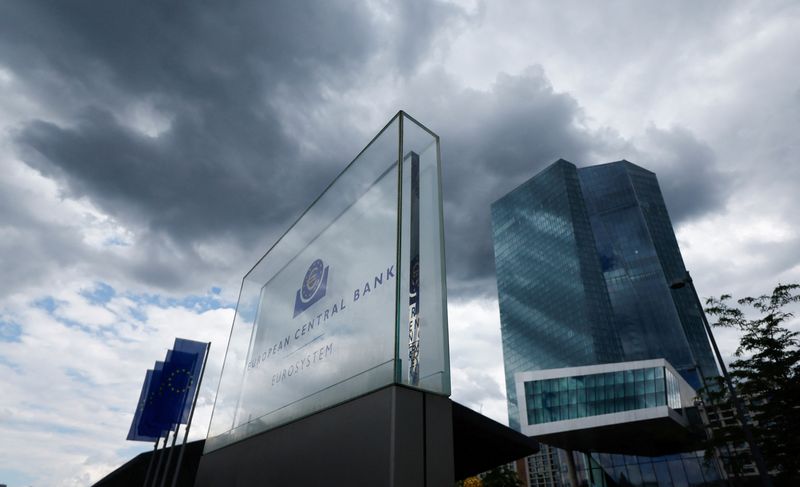FRANKFURT (Reuters) - UniCredit, Italy's second-largest bank, has taken a 9% stake in Germany's Commerzbank (ETR:CBKG) and is seeking permission to potentially raise this to 29.9%, sources told Reuters, while saying it would be open to a full takeover bid.
For UniCredit to raise its Commerzbank stake above 10% will, however, need approval from the European Central Bank, the supervisor of the euro zone's biggest banks.
Here is a summary of the ECB's role in the process.
WHEN DOES ECB STEP IN?
ECB approval is required if a shareholder wants to acquire 10% or more in a supervised lender. There are additional thresholds at 20%, 30% and 50%. A buyer, however, can apply to acquire any stake, so it can skip interim reviews if it is cleared already for a larger stake.
WHAT DOES THE ECB EXAMINE?
UniCredit will have to tell the ECB its ultimate aim and supervisors will evaluate its proposal in light of this.
It examines factors such as the buyer's reputation, the quality of board members it would appoint, the buyer's financial health and the ability of the target to comply with supervisory requirements.
The criteria give some leeway, but essentially the ECB would have to decide if UniCredit could afford to buy Commerzbank and remain financially sound, and if it would form a stronger group.
UniCredit is a capital-rich bank with plenty of cash and solid profitability. It has a common equity tier 1 (CET1) capital ratio of 16.2%, well above its target of 12.5%-13.0% despite a generous dividend and share buy-back programme.
WOULD THE ECB SUPPORT A MERGER?
It is hard to say without knowing UniCredit's specific objectives. But there are clues suggesting that if structured in the right way, the ECB could support it.
The ECB has repeatedly said that cross border mergers are desirable given inefficiency and high costs in the euro zone bank sector. Euro zone banks are also falling behind their far larger U.S. peers.
"Cross-border mergers have been hoped for by many authorities, and it will be very interesting to see that process unfold in the weeks to come," ECB President Christine Lagarde said last week.
Bundesbank chief Joachim Nagel has so far been rather neutral, but has outlined requirements for support.
"We need strong and robust banks so that companies can tackle and finance their future tasks," Nagel said this week.
"In case of possible mergers, it is important that a competitive institution is created which fulfils this task as best as possible."
WHAT DO PREVIOUS MERGERS TELL US?
In the biggest bank deal so far this year, the ECB approved a 12 billion euro ($13.4 billion) bid by BBVA (BME:BBVA) to buy smaller Spanish rival Sabadell, only to see the deal blocked by Spain's government.
Winning over the ECB may not be the biggest hurdle that UniCredit would face, a takeover of Commerzbank would have deep political implications as it would see Germany, Europe's largest economy, cede control of its second-largest bank.
HOW LONG IS THE PROCESS?
The ECB has 60 days to approve a request and this could be extended by 30 days. The process usually takes the bulk of this time, so no quick decision is likely.

WHO MAKES THE DECISION?
The ECB supervisory board, with representatives from all euro zone members, must sign off on any deal and the rate-setting Governing Council would also get to look in a non-objection procedure.